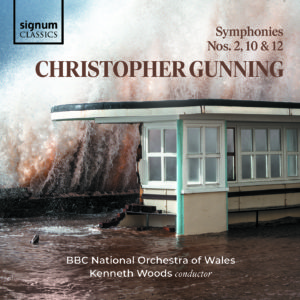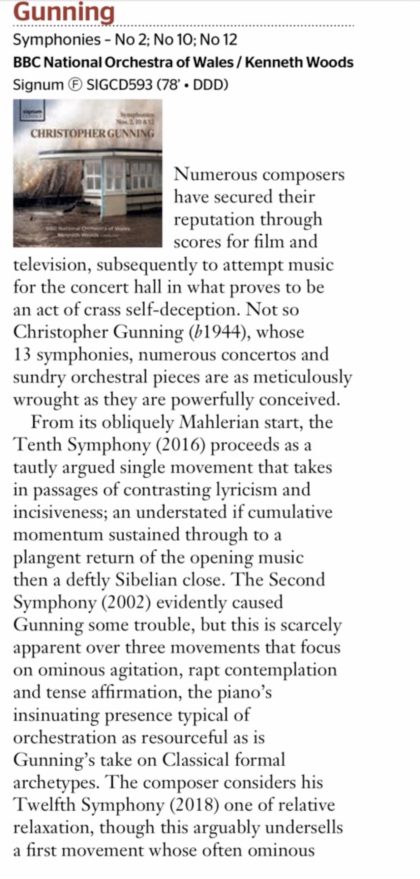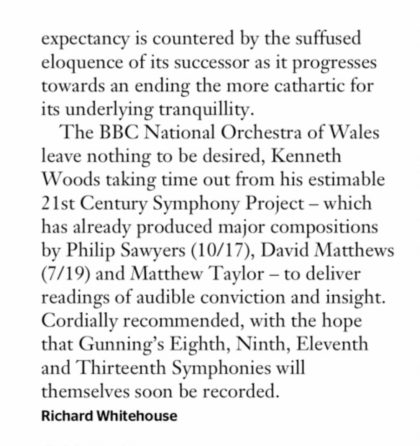Great to see another really insightful take on Christopher Gunning’s 2nd, 10th and 12th Symphonies with the BBC National Orchestra of Wales on Signum Records, this one from Richard Whitehouse at Gramophone, who call’s Gunning’s works “…..as meticulously wrought as they are powerfully conceived.”
The March issue is on sale in all good shops.
“Numerous composers have secured their reputation through scores for film and television, subsequently to attempt music for the concert hall in what proves to be an act of crass self-deception. Not so Christopher Gunning (b1944), whose 13 symphonies, numerous concertos and sundry orchestral pieces are as meticulously wrought as they are powerfully conceived.”
“From its obliquely Mahlerian start, the Tenth Symphony (2016) proceeds as a tautly argued single movement that takes in passages of contrasting lyricism and incisiveness; an understated if cumulative momentum sustained through to a plangent return of the opening music then a deftly Sibelian close. The Second Symphony (2002) evidently caused Gunning some trouble, but this is scarcely apparent over three movements that focus on ominous agitation, rapt contemplation and tense affirmation, the piano’s insinuating presence typical of orchestration as resourceful as is Gunning’s take on Classical formal archetypes. The composer considers his Twelfth Symphony (2018) one of relative relaxation, though this arguably undersells a first movement whose often ominous expectancy is countered by the suffused eloquence of its successor as it progresses towards an ending the more cathartic for its underlying tranquillity.”
“The BBC National Orchestra of Wales leave nothing to be desired, Kenneth Woods taking time out from his estimable 21st Century Symphony Project – which has already produced major compositions by Philip Sawyers (10/17), David Matthews (7/19) and Matthew Taylor – to deliver readings of audible conviction and insight. Cordially recommended, with the hope that Gunning’s Eighth, Ninth, Eleventh and Thirteenth Symphonies will themselves soon be recorded.” Richard Whitehouse



Recent Comments